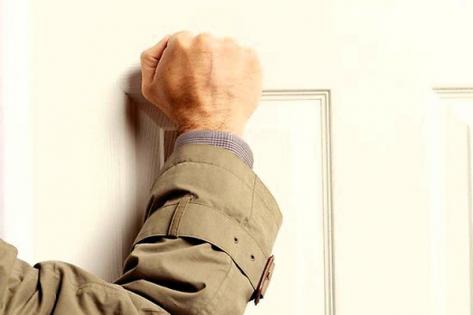Have you had a telecommunications salesperson turn up in the evening to tell you if you sign up to a new plan tonight then you’ll be first in the suburb to get NBN broadband once it’s available – which, if you live in parts of Sydney, could be up to another four years away. Or maybe an energy company that says you can save up to $400 per year “instantly” by switching electricity providers on the spot?
Knuckling down on door knocking:Adelaide MP championing a do not knock campaign.
Date: August 19 2012

Federal Labor MP, Steve Georganas from the Adelaide seat of Hindmarsh, wants to do something about it. He wants commercial organisations to check the status of a residence before sales people approach the property.
He has introduced a private member’s bill for a register of properties where the occupants do not want to hear from door-to-door sales people. The idea is to have a register similar to the Do Not Call telephone register that enables individuals to opt out of receiving unsolicited marketing calls at home. Just like the Do not Call register which has 7 million participants, Do not Knock would exempt charities, the kids across the street raising money for their school, government agencies and religious organisations.
Mr Georganas said the existing do not knock stickers which some people put on their doors to discourage sales people were not legally enforceable.
His plan would require a company to give their salespeople a list of addresses that they were not able to approach. Addresses would remain on a do-not-knock register for three years unless removed and the listing could then be renewed. Mr Georganas says he hopes the legislation might halt what he said was a trend of aggressive door-to-door sales tactics being used by some electricity and telecommunications providers.
Some of these practices were the subject of an investigation by the Australian Competition and Consumer Commission earlier this year, and opponents of Mr Georganas’ bill cite existing consumer protection as adequate.
But supporters, such as the Consumer Action Law Centre, believe the registry would protect older Australians and other vulnerable groups from intimidating sales tactics.
Mr Georganas says that many consumers have fallen victim to “misleading and deceptive conduct, like the promise of particular benefits or savings which never materialised”. He cites the example of his own mother as the type of person who is vulnerable to door-to-door sales tactics.
"I know my mother is with a new telco every week, and I say to her 'Why did you change?' and she tells me 'Well this lovely girl came around and told me that it was a lot cheaper'."
If the Bill becomes law, door-to-door salespeople and/or their companies will be obliged to check the status of a residence before their salespeople can approach the residents of the property. They will also be required to continuously monitor the Register for details of new addresses that have been entered.
It is uncertain whether the Bill will be passed. However, Mr Georganas has stated that recent research by the Consumer Action Law Centre found that 85 per cent of respondents were in favour of a do-not-knock register.
Further information: www.donotknock.org.au
You can show your support for the legislation here: http://www.communityrun.org/petitions/stop-the-knock-pass-the-do-not-knock-register-bill-2012
|
||||||||














__small.png)










